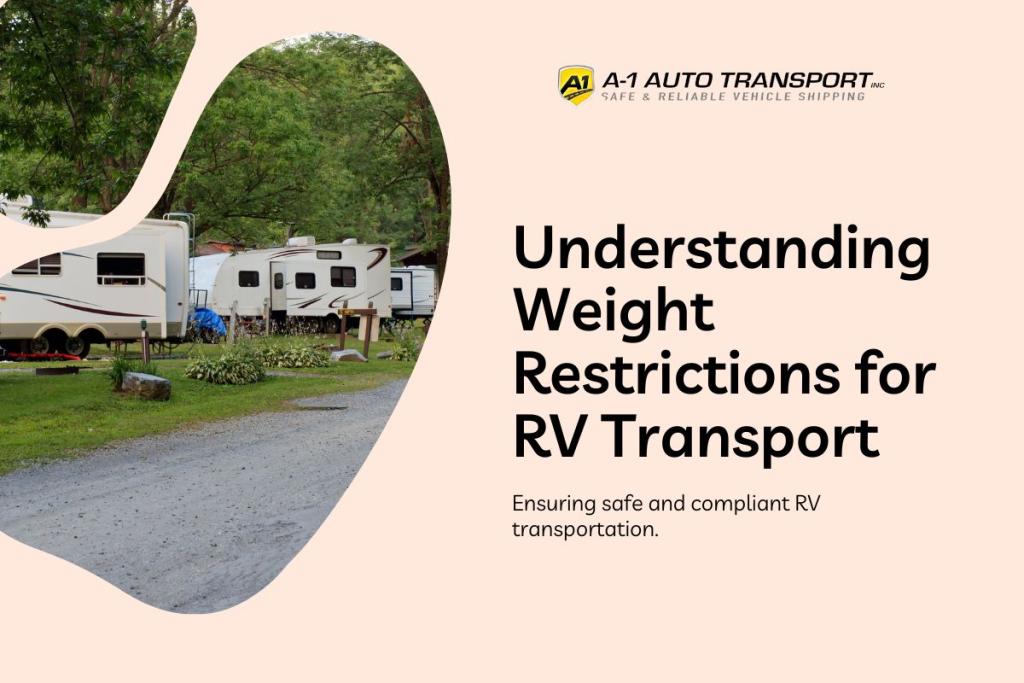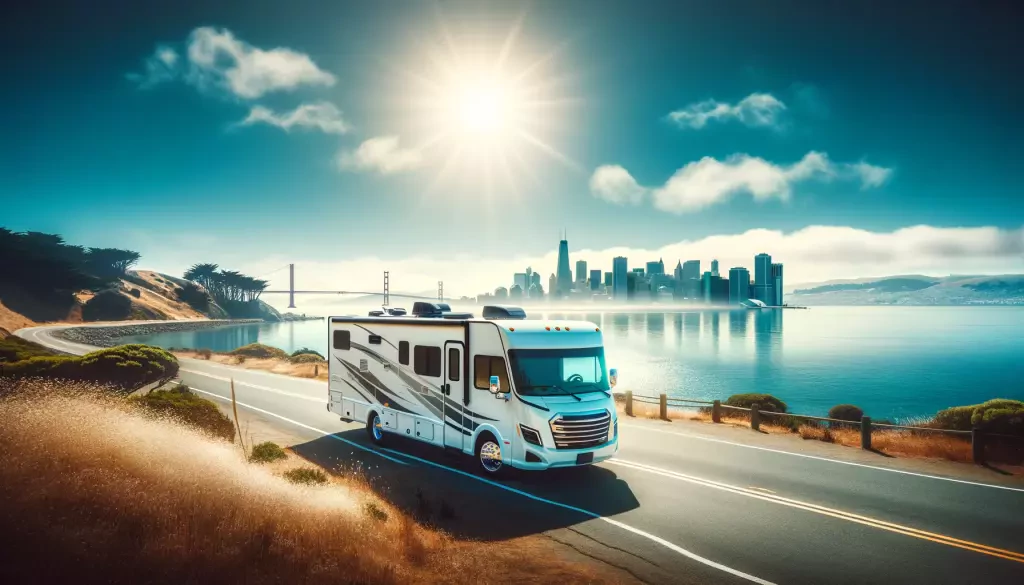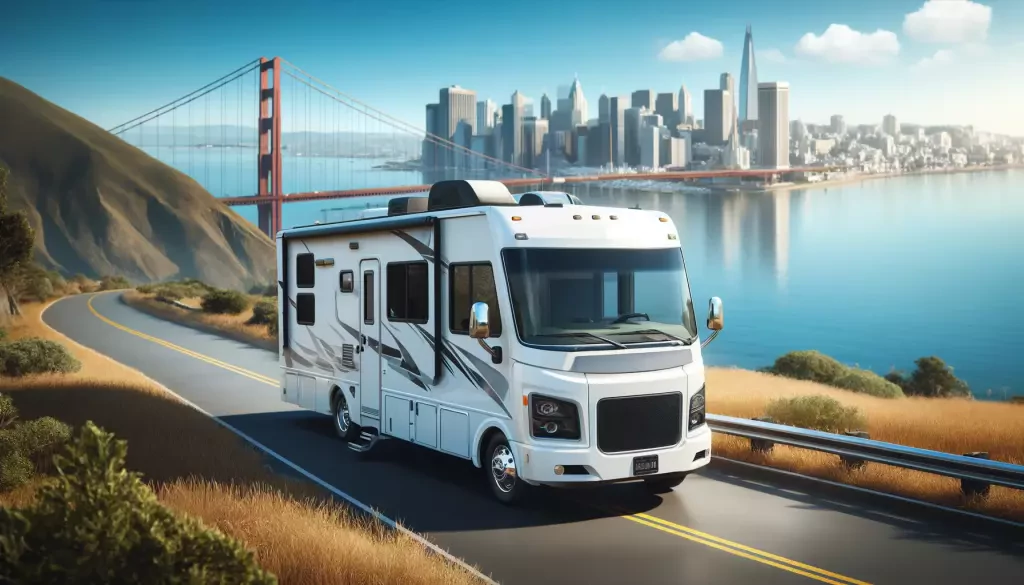
When considering load restrictions for RV delivery, it's crucial to understand the regulations that ensure recreational vehicles can travel safely on public roads. Federal and state rules govern these limits, and two key terms to grasp are the Gross Vehicle Weight Rating (GVWR) and Gross Combined Weight Rating (GCWR). GVWR indicates the maximum allowable mass of the fully loaded RV, while GCWR refers to the combined total of the RV, towing equipment, passengers, and cargo.
These ratings impact RV relocation because exceeding these limits creates significant safety risks, like impaired braking and control. Furthermore, states impose legal penalties, including fines and driver’s license points, for overloading. Delivery services handling hazardous materials may face even stricter requirements, needing special permits and commercial driver’s licenses.
Understanding these load limits helps ensure RV hauling is done safely and within the law. Not adhering to regulations can lead to increased accident risks and costly penalties, so compliance is critical.
Understanding GVWR and GCWR
Gross Vehicle Weight Rating (GVWR) is the maximum total mass an RV can safely carry, including its chassis, body, passengers, and cargo. Meanwhile, Gross Combined Weight Rating (GCWR) measures the maximum allowable total of a fully loaded RV and its towing setup.
GVWR and GCWR are essential because they ensure safe RV shipping by preventing overloading. Manufacturers calculate these ratings based on structural limits and braking capacity. Federal authorities set guidelines, but states might also enforce specific mass restrictions.
- Gross Vehicle Weight Rating (GVWR): Maximum mass an RV can carry, including chassis, body, passengers, and cargo.
- Gross Combined Weight Rating (GCWR): Maximum allowable total of a fully loaded RV and its towing arrangement.
Different classes of RVs have unique mass limitations. For example, lightweight utility trailers might have a GVWR of under 10,000 pounds, while fifth wheel trailers can exceed 15,000 pounds. Heavier RVs used for hazardous material delivery must meet stricter load requirements. Understanding these limits is critical to prevent overloading, which risks driver safety and violates state laws.

State-Specific Load Regulations
Load restrictions for moving RVs vary significantly between states. While federal standards set the foundation, each state may implement its own rules for load limits and maximum dimensions. For instance, states like California enforce stricter load rules, requiring a commercial driver's license for RVs exceeding a certain capacity.
Unique regulations apply to fifth-wheel and travel trailers, including specific restrictions on trailer length and posted speed limits. Some states mandate special permits or certifications for RVs carrying hazardous materials. Additionally, regional road conditions and infrastructure influence compliance requirements.
It's important to consult the Department of Transportation or relevant motor licensing authority websites to navigate these differences for state-specific details. Resources from hauling services and travel organizations often provide guidelines on compliance, helping owners comply with the law and ensure smooth journeys.
Impact of Load on Camper Delivery Safety
Exceeding load limits for RV hauling can significantly compromise safety. An overloaded unit places immense strain on the braking system, reducing its efficiency and making it harder to stop, especially on wet roads or steep descents. Hauling hazardous materials in an overloaded RV increases safety hazards, as brake failure or loss of control can result in dangerous spills or accidents. Stability is also affected, increasing the risk of rollovers and sway, particularly during sharp maneuvers.
Safety features like anti-sway bars, load distribution hitches, and safety chains are crucial for heavier setups. Fifth wheels often require specialized towing setups to maintain stability. Advanced braking systems, such as electronic brake controllers, help synchronize trailer and towing setup brakes, while onboard monitoring systems can alert drivers to hazardous load levels.
Key safety features for heavier setups include:
- Anti-Sway Bars: Stabilize the trailer to prevent sway.
- Load Distribution Hitches: Balance loads across axles.
- Safety Chains: Prevent trailer separation.
- Specialized Towing Gear: Ensure stability for fifth wheels.
- Advanced Braking Systems: Electronic controllers synchronize braking between the trailer and towing setup.
- Onboard Monitoring Systems: Alert drivers to dangerous cargo loads.
Ignoring load regulations creates oversized setups that pose risks to both the driver and others on the road. To meet safety requirements, it's essential to follow load guidelines and understand how your RV's total capacity aligns with legal limits.

Legal Consequences of Overloading
Moving an RV that surpasses legal load limits can lead to severe penalties. Commercial drivers caught exceeding these restrictions may face fines, citations, and points on their driving record. If hazardous materials are involved, the penalties can escalate to include suspension or revocation of commercial driving privileges.
Overnight parking facilities may also issue fines for violations of size restrictions. Beyond monetary consequences, overweight units can be impounded until they meet compliance standards. Repeat offenders risk higher penalties and permanent marks on their records.
Ultimately, following safety guidelines and adhering to load regulations is essential to avoid legal issues and ensure safe and lawful RV delivery.
Best Practices for Compliance
To ensure your unit stays within legal load limits before hauling, weigh it at certified scales available at truck stops or weigh stations. Measure your rig's combined length and check it against state guidelines. Use the Gross Vehicle Weight Rating (GVWR) to confirm if your setup is within acceptable capacity.
Regular maintenance is key to managing load compliance. Monitor fluid levels, remove unnecessary items, and distribute cargo evenly. When parking overnight during extended trips, verify that your setup remains within size and load limits after adding or removing supplies.
Consider using a load distribution hitch and sway control bars for the fifth wheels. Follow manufacturer recommendations for safe towing gear and comply with oversized load regulations. Securely attach safety chains to prevent trailer separation.
Steps for Compliance Before Hauling:
- Weigh the Setup: Use certified scales at truck stops or weigh stations.
- Measure Combined Length: Compare it with state-specific limits.
- Verify GVWR: Ensure your unit does not exceed its maximum capacity.
Additional Best Practices:
- Routine Maintenance: Check fluid levels and remove unnecessary items.
- Balanced Cargo: Distribute supplies evenly for stability.
- Proper Towing Equipment: Use load distribution hitches and sway control bars for the fifth wheels.
- Secure Connections: Attach safety chains to avoid separation.
By following these practices, you can maintain compliance with RV delivery regulations, avoid fines, and promote safety for everyone on the road.

Preparing Your Mobile Home for Compliant Delivery
When getting your RV ready for hauling, following a compliance checklist ensures safety and adherence to regulations. This step-by-step guide will help:
- Verify Load Compliance: Check the Gross Vehicle Weight Rating (GVWR) to ensure it meets legal requirements. Additional restrictions apply if carrying hazardous materials.
- Check the Towing Setup: Ensure the towing unit can handle the Gross Combined Weight Rating (GCWR). If the combined capacity exceeds 26,000 pounds, a commercial driver's license may be required.
- Balance and Distribute Loads: Use proper loading techniques to evenly spread loads across both axles—position heavier items near the center to maintain stability and reduce sway.
- Secure Items: Fasten loose objects and lock down heavier gear to prevent dangerous shifts during transit.
- Inspect Towing Equipment: Confirm the hitch, load distribution systems, and safety chains are installed correctly and rated for the load.
- Brakes and Lights: Test the braking mechanisms, ensure the controller is operational, and verify that all lights function.
These steps ensure your setup is safe and compliant, preventing overloading and facilitating a smoother trip.
Conclusion
Adhering to load limits when delivering an RV is essential for safety and legal compliance. Careful preparation, balanced cargo placement, and routine equipment checks help prevent hazards and meet legal standards. Moving hazardous materials demands even stricter adherence to protect public safety.
Failing to follow guidelines can result in fines, accidents, or the loss of a commercial driver’s license. However, you can ensure better control and efficient delivery by complying with these standards.
For reliable RV hauling, visit A1 Auto Transport here and schedule a dependable and compliant service. Their expertise ensures a secure trip and peace of mind.







 Share on Facebook
Share on Facebook Share on LinkedIn
Share on LinkedIn Share on Twitter
Share on Twitter




 Google
Google  Instagram
Instagram  Trustpilot
Trustpilot 

